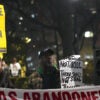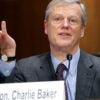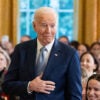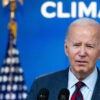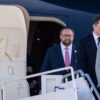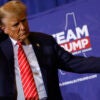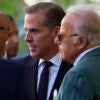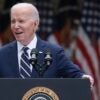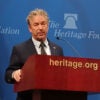In recent months, the Obama Administration has come under increasing criticism for its overly optimistic Burma policy. The Administration has long claimed Burma as its foreign policy success story, but ongoing human rights violations and slow-going political reforms have called that into question.
Secretary of State John Kerry’s recent visit to Burma for Association of Southeast Asian Nations (ASEAN) meetings was particularly scrutinized. During the trip, Kerry’s tenor reflected the international community’s grave concerns regarding continued persecution of the Muslim minority Rohingya, ongoing violence among ethnic groups, and general consensus that Burma isn’t reforming fast enough. In fact, many accounts describe it as backsliding.
Regrettably, the Obama Administration’s initial excitement over reforms has left the U.S. with only minimal diplomatic leverage to push for continued reforms. From relaxed sanctions to heightened diplomatic exchanges and military engagement, current policy has been too much too soon.
A policy once annunciated as “action for action” was overtaken by an immensely more complex game of supporting “reformers.” As a consequence, policy and results on the ground have become disconnected. A need to sustain a positive foreign policy narrative has overtaken the effort to sustain actual reform.
A more assertive tone, adopted by Kerry and encouraged by Senators Marco Rubio (R–FL) and Mark Kirk (R–IL)and Representatives Trent Franks (R–AZ) and Ed Royce (R–CA), however, may be too little too late.
Walter Lohman, Director of the Asian Studies Center at The Heritage Foundation has long endorsed a more cautious approach to Burma’s reforms:
The Obama Administration has emphasized that as long as the legal framework for sanctions remains in place, it has insurance against the Burmese backsliding on reforms. Even under the most optimistic of scenarios, this insurance will be useful in guarding against counterrevolution following the 2015 elections. In the meantime, however, Congress needs to step in and add the “stick” back to a policy that has become all “carrot.” It can do this by reasserting its historic role in Burma policy, setting concrete objectives, and clarifying the consequences of underperformance.
The 2015 elections in Burma will be a testing ground to determine whether Burma’s reforms are lasting or momentary. The international community and particularly the U.S. will be watching to see whether the recovering nation can guarantee a free and fair electoral process for its people.
Rather than welcoming Burma with open arms, much less claiming it as the Administration’s greatest foreign policy success story, the U.S. should be honest about Burma’s setbacks, challenges, and the tenuous nature of current reforms and reflect them in its policy approach. Reform in Burma requires more than carrots and more than rhetoric.
